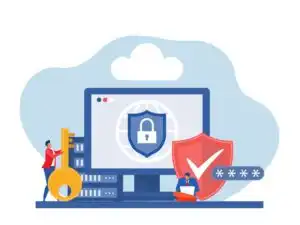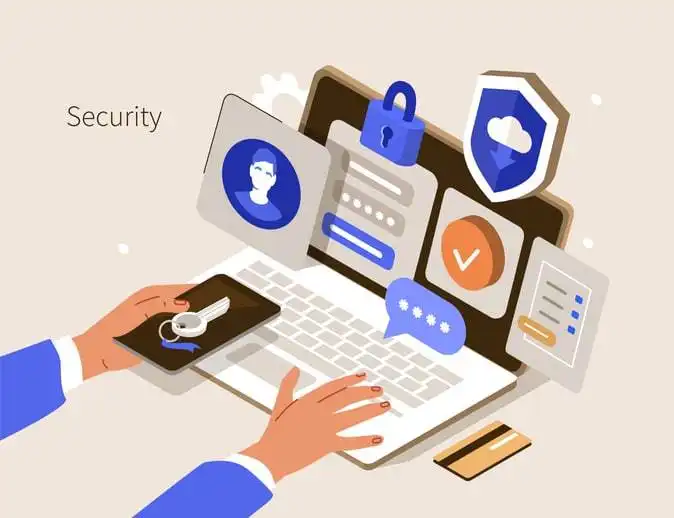What is a Virtual CIO?
A virtual CIO is a Virtual Chief Information Officer and is essentially a company or individual contractor that fulfills the role of a business’s chief information officer rather than someone in-house.
What Does a Virtual CIO do?
A virtual CIO works closely with and offers advice and recommendations to all the IT departments in a business, with the same responsibilities as a traditional chief information officer. Some of the most common duties include:
- Developing strategic IT goals
- Planning the budget for IT
- Assessing and reworking existing business processes
- Facilitating any necessary technology changes
- Helps clients maintain their existing IT infrastructure while keeping it safe and secure.
When a business only has a limited-sized IT team or no in-house IT department, the virtual CIO can have greater authority over making business-critical IT decisions and deploying technology.
Although the work may be similar to other technical advisory positions, a virtual CIO takes a much broader view, specifically focusing on IT and business alignment. Whereas more traditional third-party IT advisory individuals and teams like MSPs will primarily focus on delivering tech services.
Who Can Benefit from a Virtual CIO?
SMBs that do not have the in-house resources or manpower to take on larger-scale; IT projects like digital transformation can take advantage of a virtual CIO. An effective virtual CIO can offer the expertise, flexibility, and efficiency that many businesses need to make crucial IT strategies for a more affordable price, particularly when compared to the price of hiring a conventional chief information officer.
Similarly to their in-house counterparts, good virtual chief information officers need to have a broad and in-depth understanding of IT and tech and the necessary soft skills to successfully navigate the always-changing corporate spaces.
Important Qualities to Look for In a Virtual CIO
If you are in the process of looking at virtual CIOs, you should consider hiring one that offers the following:
- Aligns IT Strategies with Business Goals – virtual CIOs must provide expertise on technology that a business needs to meet its objectives. The best at their job will do this by establishing an effective and efficient line of communication between them and the decision-makers of your business.
- In-depth Knowledge of Trends in IT and Technology – Virtual CIOs should have in-depth knowledge of the latest technology and IT equipment and solutions available and understand how they fit into a business’s tech portfolio. They also need to be able to explain when emerging tech can be useful to your business. Experienced virtual CIOs will meet regularly with their clients so that they have a better understanding of how your business is changed and any opportunities there may be for technology to help you meet new demands.
- Adept at Planning and Managing IT Projects – virtual CIOs should be able to plan and manage IT projects based on the budget and needs of your business.
- IT Budgeting Experience – a crucial part of a virtual CIOs job is to successfully guide your business in planning your IT budget and optimizing strategies based on budget. It’s vital, therefore, that they have a proven track record in tracking ROI for current and future technology.
- Effective Interpersonal Skills – in their role as IT leaders for your business, virtual CIOs need to be transparent about the type of assistance they can provide, their response time, and availability. They should not make empty promises and must be able to adapt to your organization’s own business’s work style, culture, and needs. They must communicate effectively with all members of your existing IT team.
- Flexibility and Adaptability to Changing Business Goals – Virtual CIOs are usually very proactive when planning; they need to appreciate changing business goals and adapt their plans based on any changes to goals.
Benefits of Virtual CIOs
Although cost avoidance is one of the most important benefits that come from working with a virtual CIO, there are others too:
- Simple Onboarding – from an HR perspective, your business does not need to spend a lot of time and money going through the process of hiring and onboarding a CIO that is a fully-fledged team member.
- Around-The-Clock Availability – due to the nature of their working environment and their services being almost completely offered remotely, 24/7 availability is another huge benefit of virtual CIOs. Depending on their size, some vendors will offer more than one consultant for your business to provide the needed support and assistance.
- Objectivity – as a virtual CIO is not officially a member of your team, they are not subjected to internal politics as much, giving them greater objectivity. A virtual CIO will be able to give you a fresh point of view and ideas for problems you have with legacy technology that your business may not have had the resources in the past to solve.
- Small to Medium Business-Friendly – compared to the expense of hiring an in-house CIO, virtual CIOs can offer your business a greater level of IT and tech expertise for a more affordable price. While many small and medium businesses may have members of their team that have a level of proficiency with the IT systems and technology used by the business, they lack the in-depth knowledge and understanding that a fully trained and experienced virtual CIO has.
Conclusion
If you are interested in pushing your business forward to meet its goals through better use of technology and IT, consider hiring EDG.Tech as your Virtual CIO. We have the experience and expertise to help you utilize modern technology effectively while staying within your budget.
If you have any questions or ideas, why not reach out to us today!





